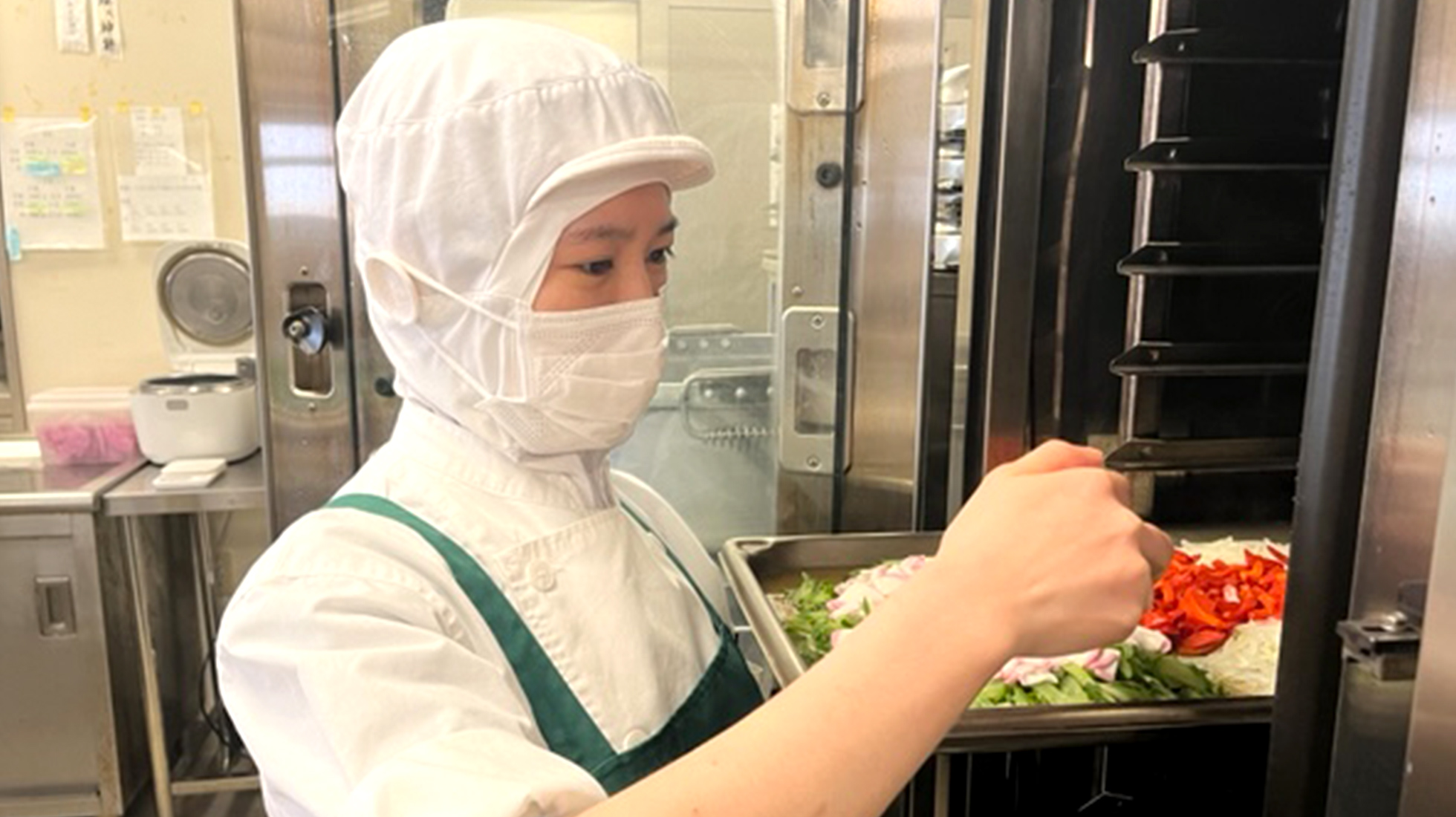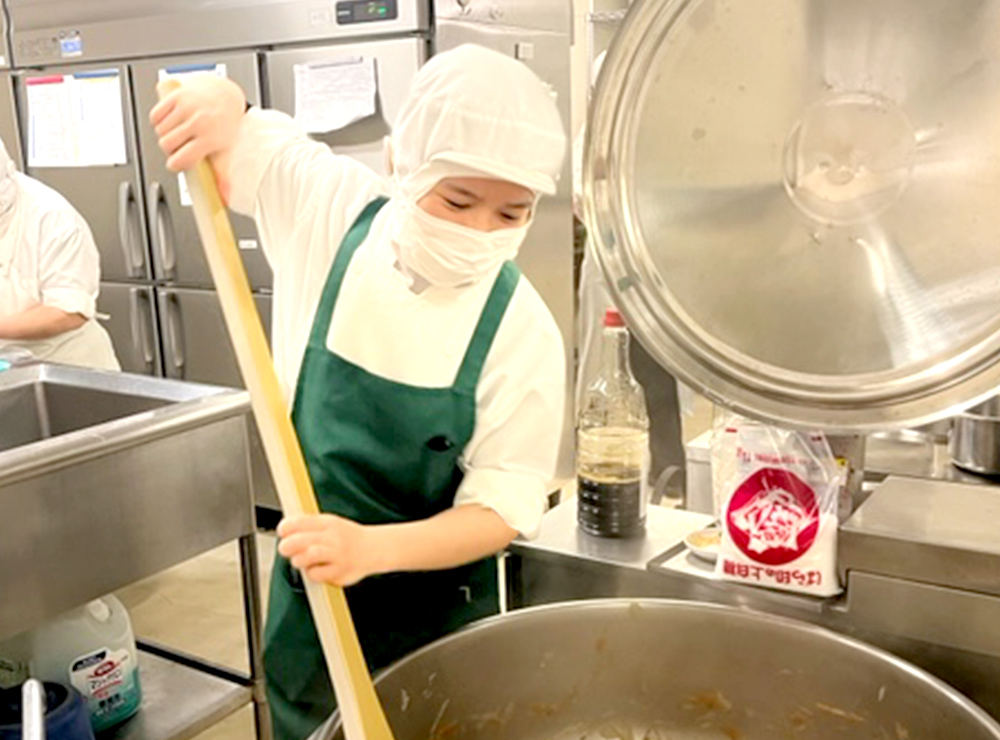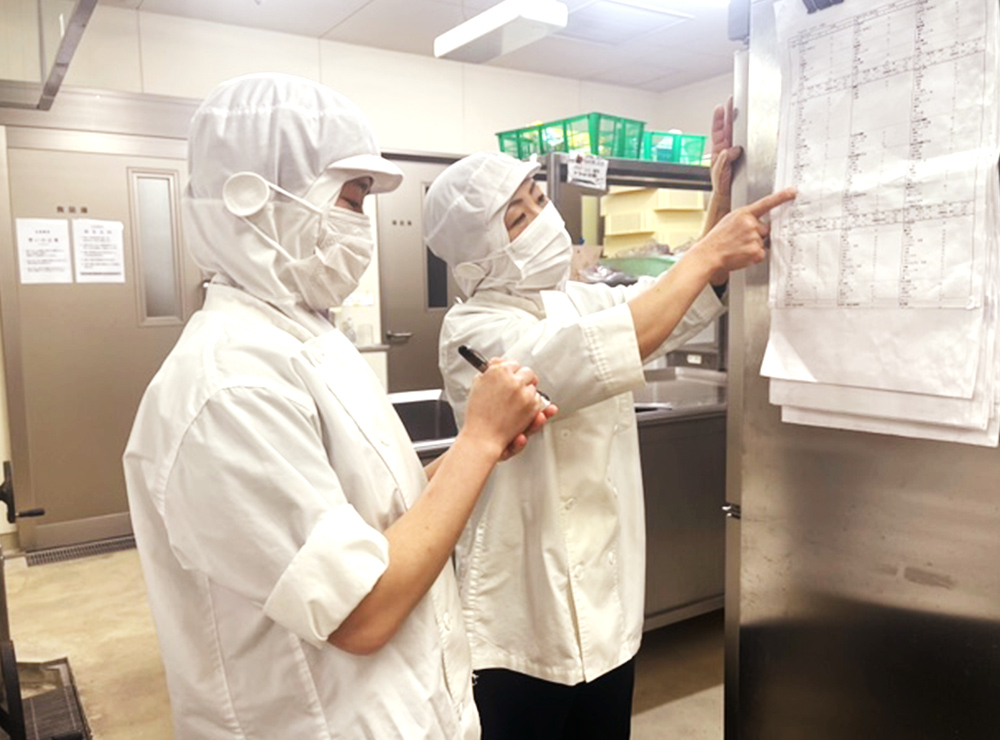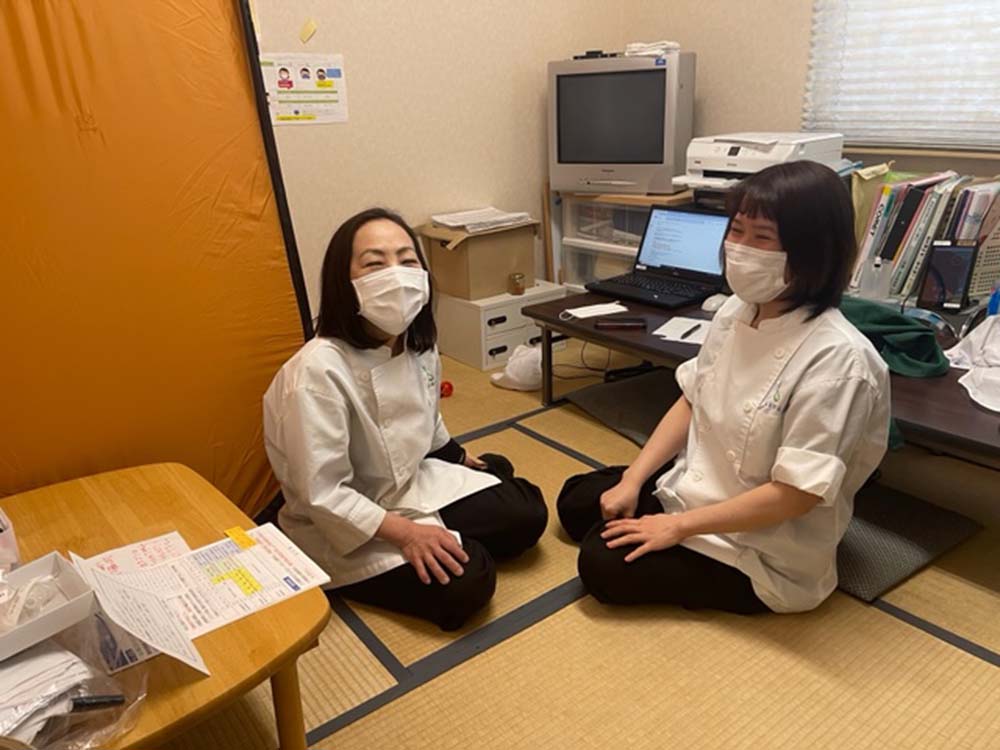We have introduced E-learning for training and for improving the skills of our foreign employees through cooking videos and other means. We hold a Japanese language study group twice a week to provide a study program for employees aiming to pass the N2 and N1 levels of the Japanese Language Proficiency Test. In terms of living arrangements, we have put in place a system that provides comprehensive support for hiring, housing arrangements and attendance at workplaces. In order to provide personalized support to each individual worker, staff members who speak the same language as the foreign employees, mainly those with status of residence of technology, humanities, or international services, follow up on their daily life and training.
We also instruct the kitchen staff who accept foreign human resources to use "easy Japanese" that is easy to understand by foreigners. As a result, the awareness of communicating things according to the other person's situation and level of understanding has taken root, and the benefits have been more easily conveyed not only for foreign employees, but also for new employees and employees who have been transferred.
In the beginning, there were some people who were somewhat defensive or unnecessarily worried about working with foreigners due to language and cultural differences. However, we have been able to change the mindset within the company and create a positive cycle by educating the receiving side, improving the treatment and environment for foreign employees, and, above all, having foreign employees themselves play an active role in the workplace. We hope that companies that will accept foreign workers in the future will create an environment that responds to the motivation of foreign human resources.





